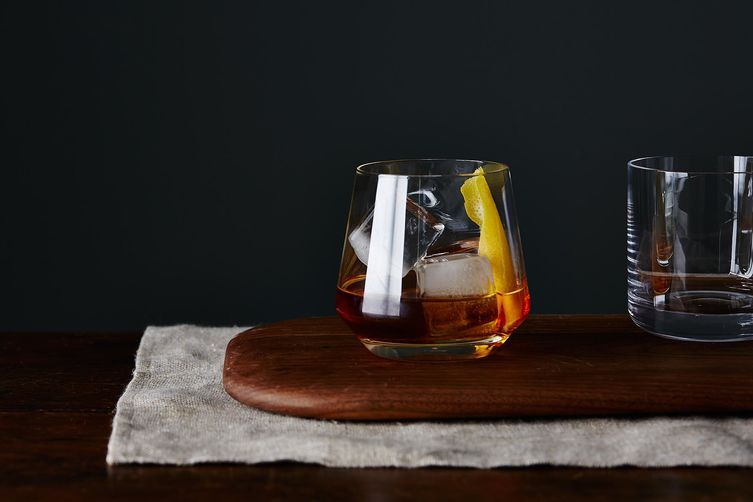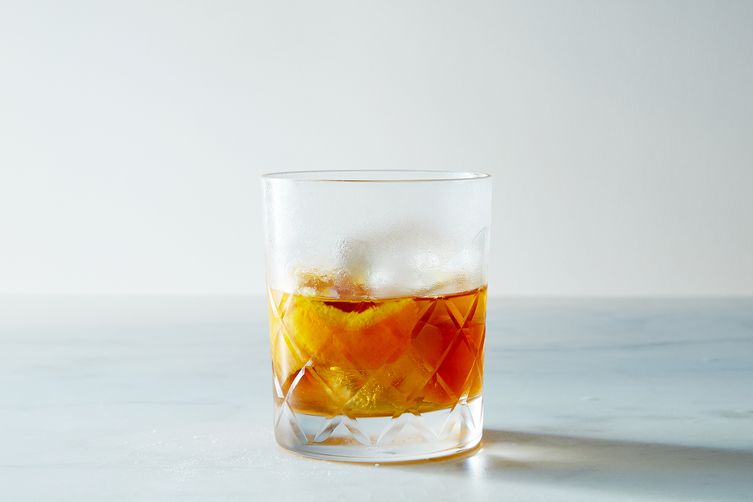A new generation of whiskey producers is turning tradition on its head.

Austin Hope picks up on the first ring. Before I have time to acknowledge him, he greets me in a single breath, “Hi! Just got back inside from harvesting Syrah grapes!” I’ve caught him during one of his brief interludes home at his family’s winery in Paso Robles, California. Nowadays, Austin spends just two weeks a month at the vineyard. The rest of his time, he’s in Kentucky pursuing his whiskey company, Highspire, though Austin will be the first to tell you that the two industries couldn’t differ more.
“They’re polar opposites,” he confirms. In the background, I can hear him working on something—I imagine him carting barrels of grapes to be pressed. “It’s a different mindset—and the only similarity is supposed to be that they use barrels and fermentation, but for me it’s more fun [than that].” Five years ago, Austin toured distilleries in the nation’s bourbon capital, and kept questioning why they didn't use non-traditional technology to aid in whiskey production. “Finally,” he recalls, “one of the guys just said ‘Because we don’t!’” Austin’s reaction was to turn tradition on its head and make a whiskey using the techniques he’d learned from winemaking.
More: Know your single-malt from your blended.

As soon as Austin found a distillery, he sought out a farmer to produce heirloom rye to turn into a “single varietal” whiskey, if you will. “I did it, I guess, because it’s the hardest thing to do,” Austin laughs. The rye only produced half-proof gallons per barrel—compared to four or more gallons for corn, but Austin stuck with it. “I really like rye,” he defends himself. “When you take a high corn mash and it comes out distilled, it’s not really pleasant. But with a high rye build, it smells so good, like a bakery—and it tastes good.” To make up the difference in proof, Austin called in another winemaking trick: enzymes. By adding the enzymes and different strains of yeast, he was able to get a yield of four-proof per bushel, which, in his own words, “is pretty unheard of.”
Proof solved, Austin made sure the rest of the whiskey-making process maintained the rye’s integrity. “If you’re a wine critic and get a sample that has too much oak in it, it drowns out the fruit, and the wine critic is going to say it isn’t good. But in whiskey, it’s all barrel, barrel, barrel—so I wanted to go the wine route and make it about the grain.” He shipped out his family's own Cabernet and Syrah barrels, then charred them lightly (whiskey barrels are usually lit on fire to create a char that ressembles charcoal). “A light char imparts an oak flavor, so that was kind of the plan.”
The only place the whiskey process really diverges from wine process is in the aging time. Austin says, ”On average, a good bottle of red wine is going to be aged between 12 and 16 months in barrels.” Austin’s whiskey, on the other hand, is only aged for 130 days—which even differs from traditional whiskey practices, which abide by “time equals quality.”
The spirit that results is a 100% rye whiskey with fruity notes from the wine barrels, and a woody finish from the rye. Some may argue that the spirit is too devolved from tradition to be a whiskey at all, but it's a far cry from wine—not that this keeps Austin from confusing the two. He tells me of the whiskey, “It’s makes a really neat wine,” then corrects himself: “I mean cocktail.”
Do you think whiskey-makers should stick to traditions? Would you drink whiskey made with winemaking techniques? Tell us in the comments below!
Photos by James Ransom



See what other Food52 readers are saying.